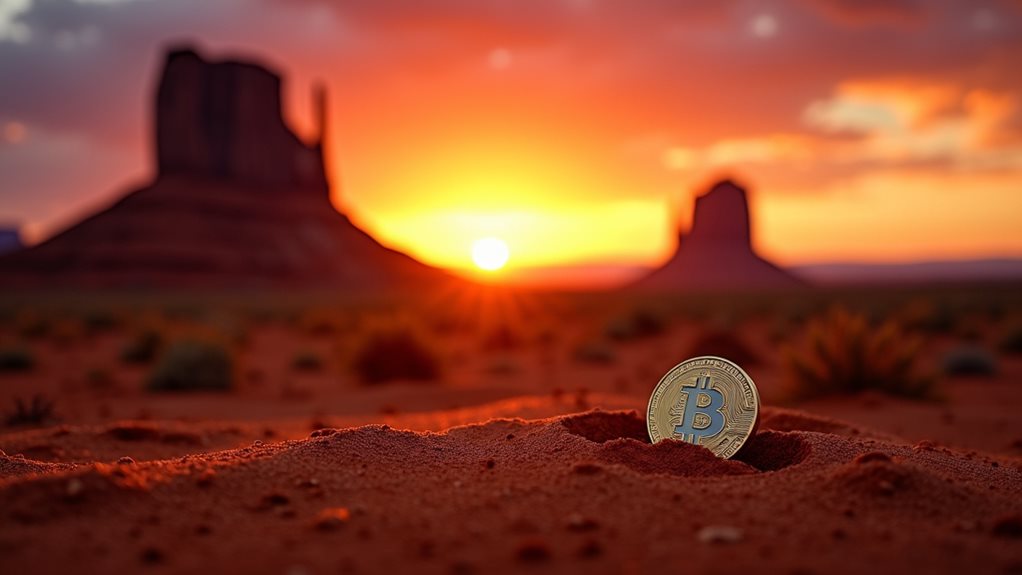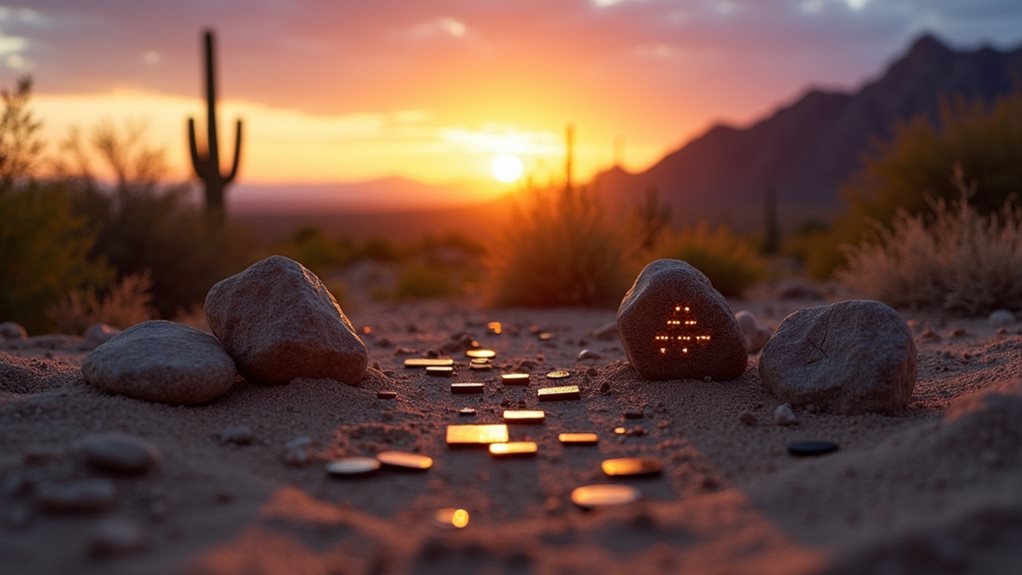Arizona’s making waves in the crypto world, but not how you’d expect. After Governor Hobbs vetoed a bill for direct crypto investments, she turned around and signed House Bill 2749, establishing a Bitcoin Reserve Fund focused on unclaimed digital assets. The move follows New Hampshire’s lead but takes a more cautious approach. No risky direct investments here – just smart management of existing crypto assets. The state’s crypto journey is just getting started.

Every now and then, a state does something that makes crypto enthusiasts sit up and take notice. Arizona just did exactly that, establishing a Bitcoin Reserve Fund through House Bill 2749, signed into law by Governor Katie Hobbs. The kicker? This comes just days after she vetoed a different crypto bill. Talk about mixed signals.
Arizona’s crypto journey takes an unexpected turn as Governor Hobbs signs Bitcoin Reserve Fund law while rejecting another crypto bill.
The new law isn’t your typical “let’s dump taxpayer money into Bitcoin” scheme. Instead, Arizona’s taking a more creative approach, focusing on unclaimed digital assets and staking rewards. It’s like finding money in your couch cushions, except the couch is the entire state of Arizona, and the loose change is crypto. The state will ensure responsible management by prohibiting sales of digital assets below market prices.
Following New Hampshire‘s lead as the first state to embrace crypto reserves, Arizona’s putting its own spin on things. While New Hampshire went all-in with direct investment of public funds, Arizona’s playing it safer with unclaimed assets. Smart move, considering Bitcoin’s roller-coaster reputation. The Wisconsin Pension Fund has already taken steps by including Bitcoin in its portfolio.
The cryptocurrency industry’s practically doing backflips over this development. And why wouldn’t they? It’s another brick in the wall of mainstream acceptance. Despite the usual concerns about volatility – because let’s face it, Bitcoin prices swing more than a playground set – states are starting to see the potential. With 28% of Americans now owning crypto assets, the momentum for institutional adoption is clearly building.
What makes this particularly interesting is the timing. Hobbs shot down Senate Bill 1025, which would have allowed investment of public funds in cryptocurrencies, only to turn around and approve this more measured approach. The message is clear: Arizona wants in on the crypto game, but on its own terms.
The law creates a framework for managing these digital assets, giving the state oversight while potentially benefiting from airdrops and staking rewards. It’s a cautious step forward, but a step forward nonetheless.
As other states watch from the sidelines, Arizona’s joined New Hampshire in the crypto spotlight. Whether this triggers a domino effect of state-level crypto adoption remains to be seen. But one thing’s certain – the crypto world just got a little bigger in the Southwest.









